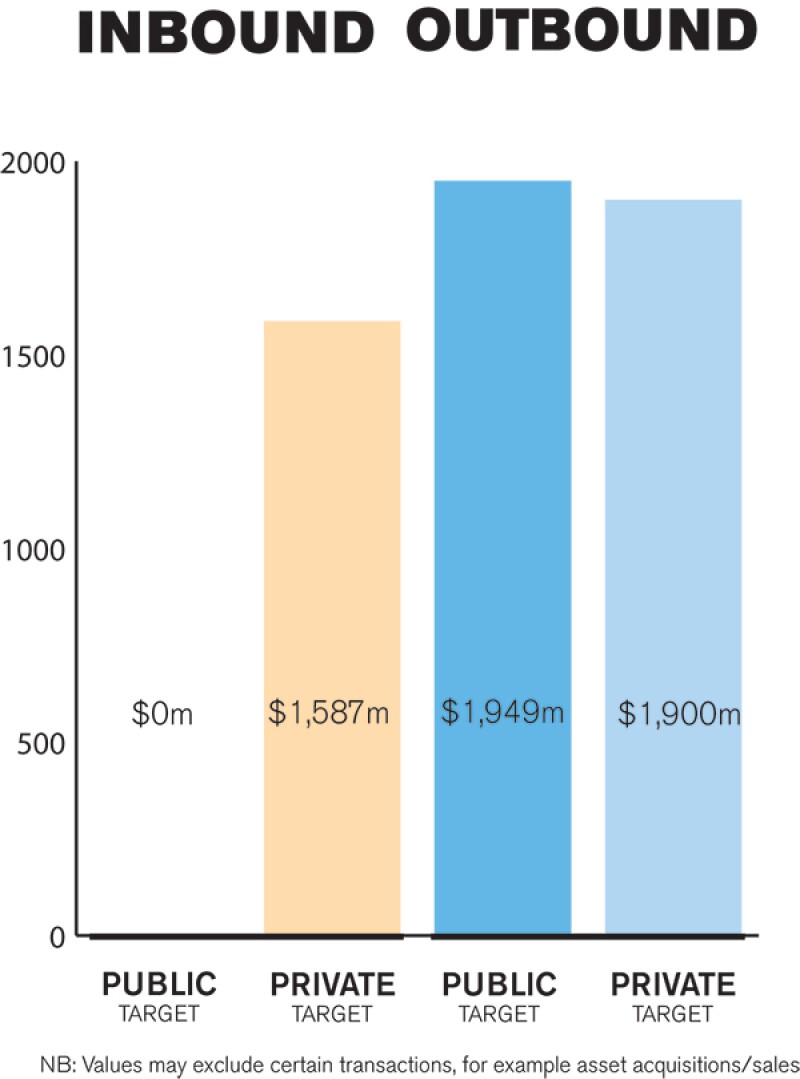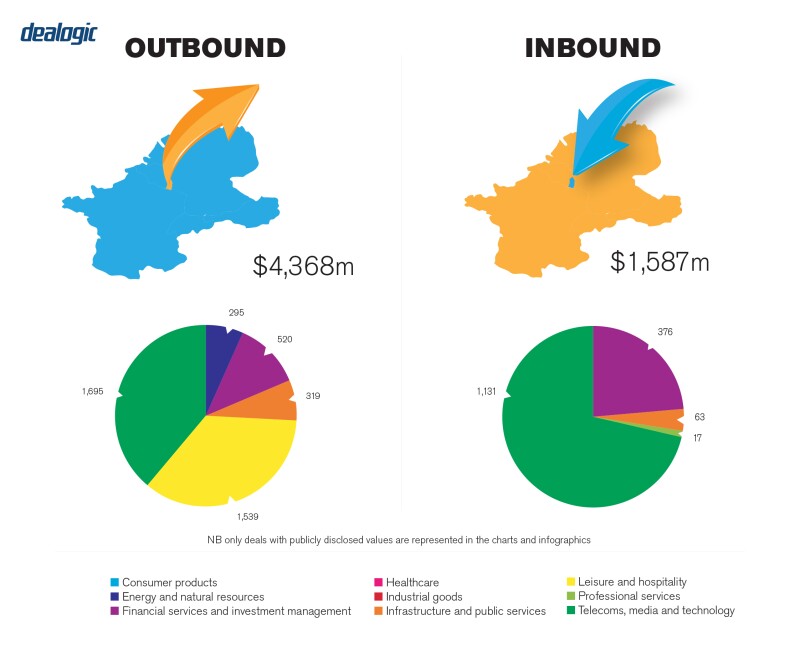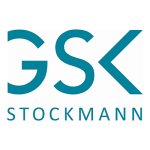In the end, 2019 delivered a relatively active M&A market in terms of acquisitions of Luxembourg-based target entities as well as transactions using Luxembourg as a European hub for vehicles investing directly or indirectly in European entities across different sectors.
The last large M&A transaction using Luxembourg entities as a platform was the combination of Sivantos and Widex, creating a global hearing aid leader worth approximately €7 billion. Other notable M&A transactions included the acquisition by RTL Group of a controlling stake in UK-based video technology company Yospace, the acquisition by PAI Partners and Kirkbi of Armacell from Blackstone, valued at €1.4 billion, and the sale of Nestlé Skin Health to a consortium led by EQT Group and a wholly owned subsidiary of the Abu Dhabi Investment Authority for an approximate value of CHF10.2 billion ($10 billion).
Hence, one can see that Luxembourg continues to remain a core jurisdiction in the EU as a hub from which M&A transactions are guided into other European jurisdictions, and that the Luxembourg government keeps an open-minded approach towards international activities and international investors. A large portion of the M&A transactions in Europe, and also in relation to other continents such as Asia, are implemented via Luxembourg structures. Over recent years, Luxembourg has also experienced a growing interest from China-based investors looking to channel their inbound M&A transactions into the EU or Latin America through Luxembourg investment structures.
The investment funds industry continues to play a major role in the Luxembourg financial and legal market. As of December 31 2019, the value of net assets under management (AUM) for regulated fund structures had increased over a 12-month period by 16.1%, reaching €4.72 billion. The size of the average private equity fund domiciled in Luxembourg has increased by 50% since 2018, with the number of private equity funds holding assets worth more than €1 billion doubling to a total of 36 funds in 2019. These funds have been investing and will generate further M&A transactions aimed at mostly European-based targets.
In 2019 there was no substantive difference in M&A activity compared to previous years. Key sectors for M&A activity remain diverse. The deal volume for Luxembourg itself remain rather small, however the number of M&A deals steered through Luxembourg vehicles into other markets remains high.
The market is characterised by a mix of private and public M&A transactions. Again, M&A targets in both the private and public sectors are often not located in Luxembourg itself but in other jurisdictions. Due to the positive legal and business environment in Luxembourg we often see M&A transactions with European targets orchestrated from a Luxembourg-based structure (investment fund or other).
TRANSACTION STRUCTURES
Luxembourg vehicles are frequently involved in M&A transactions for acquisitions of foreign assets and target entities; for example, acquisitions of real estate in Germany, France, Italy, Switzerland and other EU countries through Luxembourg holding structures which eventually end up holding the acquired real estate seem to be predominantly used in Luxembourg.
Strategic and financial investors alike use Luxembourg as an M&A hub to approach target entities in Luxembourg or abroad. These investor groups are increasingly choosing Luxembourg as their investment platform. This is due to the stable and investor-friendly business environment for which Luxembourg is well-known in the global investor and asset manager community. The flexible investment fund and corporate law regime allows for tailor-made solution for all kinds of investment platforms and asset classes. Furthermore, the multi-linguistic workforce in Luxembourg (private and public sector) allows investors to communicate with their advisors, administrators and even the supervisory authority in English, German or French. Advisory firms typically also have native speaking staff in Luxembourg to serve many other countries worldwide, in particular China, Russia, the Middle East and Latin America.

LEGISLATION AND POLICY CHANGES
The key legislation is the law of August 10 1915 on commercial companies, as amended (Corporate Law). The Corporate Law provides for all kinds of corporate entities and corporate instruments to create tailor-made structures useable for M&A transactions. In recent years, the Corporate Law introduced new forms of corporate entities, which further enhanced corporate structuring via Luxembourg as a platform. The special limited partnership (société en commandite spéciale) and the simplified private limited liability company (société à responsabilité simplifiée) are examples of this.
Another key piece of legislation is the law of May 19 2006 implementing Directive 2004/25/EU on takeover bids, as amended (Takeover Law), which covers squeeze-out and sell-out rights and contributes to M&A transactions of Luxembourg-based target companies. A natural or legal person acquiring, alone or with persons acting in concert with it, control over a company by holding 33.3% of the voting rights is required to make a mandatory takeover bid to all the holders of shares in the Luxembourg company. As far as the competent authority is concerned, the Takeover Law states that if the target company's securities are not admitted to trading on a regulated market in the EU member state in which the company has its registered office, the competent authority to supervise the bid will be the authority of the member state responsible for the regulated market on which the company's securities are admitted to trading.
Matters relating to the consideration offered in the case of a bid, in particular the price, and matters relating to the bid procedure, in particular the information on the bidder's decision to make a bid, the content of the offer document and the disclosure of the bid, are governed by the law of the EU member state responsible for the regulated market on which the company's securities are admitted for trading. If a mandatory or voluntary offer is made to all of the holders of securities carrying voting rights in a company, which has its securities listed on a regulated market and if, after an offer, the offeror holds 95% of the securities carrying voting rights of the respective company and 95% of the voting rights, the offeror is entitled to squeeze out the minority shareholders according to the provisions of the Takeover Law.
Under the Takeover Law, when a mandatory or voluntary offer is made to all the holders of securities that carry voting rights in a company and if, after the offer, the offeror holds more than 90% of the securities carrying voting rights and more than 90% of the voting rights, the minority shareholders may require that the offeror purchase the remaining securities in the same class.
Furthermore, the law of July 21 2012 governing the mandatory squeeze-out and sell-out of securities of companies admitted or previously admitted to trading on a regulated market, or having been offered to the public (Luxembourg Squeeze-Out and Sell-Out Law) also plays a role. It applies to the following scenarios: (i) if all or part of a company's securities are currently admitted to trading on a regulated market in one or more EU member states; or (ii) if all or part of a company's securities are no longer traded, but were admitted to trading on a regulated market and the delisting became effective earlier than five years ago; or (iii) if all or part of a company's securities were the subject of a public offer which triggered the obligation to publish a prospectus in accordance with Directive 2003/71/EC of the European Parliament and of the Council of November 4 2003 on the prospectus to be published when securities are offered to the public or admitted to trading (Prospectus Directive) or, if there is no obligation to publish according to the Prospectus Directive, where the offer started during the previous five years. The Luxembourg Squeeze-Out and Sell-Out Law does not apply during and for a certain grace period after a public takeover, which is or has been carried out pursuant to the Takeover Directive.
Finally, numerous treaties on the avoidance of double taxation allow Luxembourg to support the worldwide M&A activities of Luxembourg private equity funds and M&A parties.
The Corporate Law was recently amended in 2016 to further enhance corporate structuring. It now provides for better structuring of share classes and characteristics (voting or non-voting shares / shortening of the period for exercising preferential subscription). New corporate forms were also created, as well as more flexible provisions pertaining to the issuance of bonds and the holding of shareholders general meetings. In addition, new investment fund forms were created (for example the unregulated reserved alternative investment fund or RAIF), which provide for the swift establishment of PE and other alternative funds to allow a period to market investment activity.
On January 13 2019, the Luxembourg parliament adopted a new law relating to the register of beneficial owners (RBO Law). This came into force on March 1 2019 and implemented the fourth anti-money laundering (AML) Directive (EU) 2015/849. The RBO Law helps create more transparency in identifying the beneficial owners and ownership structures of Luxembourg entities, which in turn benefits M&A transactions.
Furthermore, on July 10 2019, the Luxembourg parliament adopted the draft law No. 7402 implementing the directive (EU) 2017/828 of the European Parliament and of the Council of May 17 2017 amending Directive 2007/36/EC as regards the encouragement of long-term shareholder engagement in listed companies, reinforcement of shareholders' rights and increasing the transparency of institutional investors, asset managers and proxy advisors.
On August 8 2019, a draft law implementing Council Directive (EU) 2018/822 of May 25 2018, relating to mandatory disclosure rules for intermediaries and the automatic exchange of information on tax planning cross-border arrangements (DAC 6), was introduced to the Luxembourg parliament. DAC 6 will be soon transposed by the Luxembourg legislator and is expected to have an impact on cross-border M&A structuring.

MARKET NORMS
To our knowledge there are no common misunderstandings about the Luxembourg M&A market.
Common questions relate to the best choice of PE fund vehicle for an M&A activity. Tax is always an important element when setting up a structure. The structure needs to be tax compliant, serve the interest of the investing group and target entity and take into view the upcoming legislative initiatives of the EU in this regard. Any changes proposed by the European Commission to tax regimes applicable to M&A structuring must not treat one EU member state in an unjustified manner while other EU member states continue to implement unreasonable tax rules. From the perspective of Luxembourg, a more unbiased approach by the European Commission would be welcomed. In this context, the European Commission should not completely suppress tax competition among EU member states, given the growing pressure from the UK and the US in lowering tax rates.
PUBLIC M&A
Key factors for public M&A involve complying with the provisions of the Takeover Law. This includes complying with the requirement to notify supervising authorities and with reporting requirements under the law, as well as with other elements related to the activity. In particular, parties to an M&A need to assess how the managing bodies of the takeover target are to be approached and what governmental authorities need to be notified.
The current market practice in Luxembourg regarding break fees shows that break fees are regularly negotiated at the beginning of a transaction. This is common in Luxembourg and it is also accepted by Luxembourg service providers that a break fee can include a certain discount, given the economic downside of an unsuccessful bid.
PRIVATE M&A
There are no new current trends in private M&A structures. The concepts mentioned above also apply to Luxembourg private M&A transactions. Completion accounts need to be presented and they may be audited. The locked-box mechanism might span a minimum period of six months and go up to two years. Recently, a growing number of private M&A transactions can be seen with view to financial sector entities such as alternative investment fund managers or banks.
In private takeovers, deal conditions are subject to specific transactions. All conditions, however, must comply with applicable law and should be identified duly in advance of starting the deal. The Corporate Law provisions apply, as so the constitutive documents of the privately-owned target entity. A shareholders' agreement will most likely also be in place and this will contain provisions pertaining to drag-along, tag-along and pre-emptive rights.
Parties to M&A transactions are inclined to have the share purchase agreement (SPA) governed by and construed in accordance with the law of the country where the target entity is located. SPAs involving Luxembourg-based target entities are typically drafted under and made subject to Luxembourg law.
Exit strategies remain the standard ones. We do see IPOs and they are often prepared as an exit strategy; however, a sale is often preferred over an IPO. Sales to strategic sponsors are rare, however sales to or among PE firms are increasingly common.
LOOKING AHEAD
The outlook is positive for 2020. We expect a growing number of M&A transactions in Luxembourg itself, however even more importantly for M&A transactions launched from Luxembourg vehicles into other EU jurisdictions. The implementation of Brexit is expected to have an impact on M&A activity and this needs to be anticipated for all service providers involved in M&A. On the other hand, Brexit will potentially bring new opportunities for the Luxembourg market.
About the author |
||

|
|
Marcus Peter Partner, GSK Stockmann (Luxembourg) Luxembourg T: +352 271802 00 Web: www.gsk-lux.com Marcus Peter heads the investment funds and private equity practice at GSK Stockmann in Luxembourg. Marcus is a lawyer qualified to practice in Germany since 2004 and Luxembourg since 2005. He obtained his LLM and PhD degrees from the European Institute in Saarbruecken, Germany. Prior to joining GSK Stockmann, Marcus worked for a Luxembourg law firm from 2004-16 (spending the last four years as a partner). He has been a partner at GSK Stockmann in Luxembourg since 2016. Marcus is an expert in Luxembourg investment funds and private equity law, M&A and corporate law. He speaks German, English, French and Russian. He is a member of the Luxembourg Private Equity Association (LPEA), Chinese-Luxembourgish Chamber of Commerce, DAV Luxembourg, EVER and CBBL (Cross Border Business Lawyers). |
About the author |
||

|
|
Kate Yu Rao Associate, GSK Stockmann (Luxembourg) Luxembourg T: +352 271802 00 Web: www.gsk-lux.com Kate Yu Rao is associate at GSK Stockmann in Luxembourg focusing on investment funds, private equity, corporate and M&A. Kate passed the Chinese bar exam in 2013 and holds a qualification as a fund manager (accredited by Securities Association of China) since 2011. She studied at the East China University of Political Science and Law, the Erasmus University Rotterdam and Bologna University. Prior to joining GSK Stockmann, Kate worked for a leading independent Luxembourg law firm. She speaks Chinese and English. |



